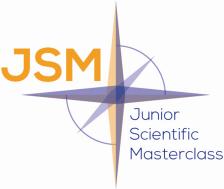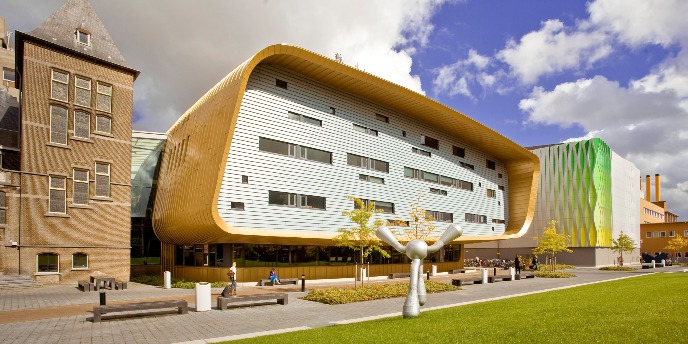
Over JSM

Welkom bij het Junior Scientific Masterclass (JSM) programma!
Als je graag je wetenschappelijke kennis wilt verbeteren, klinisch onderzoek wilt verkennen en wilt communiceren met gelijkgestemde studenten en gevestigde (klinische) wetenschappers, dan ben je hier aan het juiste adres!
Het Junior Scientific Masterclass (JSM) programma biedt studenten van de Bachelor Geneeskunde en Tandheelkunde een unieke kans om hun wetenschappelijke opleiding buiten het reguliere curriculum te verdiepen en zich (eventueel) voor te bereiden op het MD/PhD-traject.
Het JSM-programma biedt jou de gelegenheid om:
-
De integratie van wetenschappelijk onderzoek en klinische zorg te verkennen
-
Deel te nemen aan praktijkgerichte onderzoeksprojecten onder supervisie van gevestigde (klinische) wetenschappers.
-
Je wetenschappelijke kennis te verdiepen en je onderzoeksvaardigheden te ontwikkelen
-
Je opleiding af te stemmen op je individuele interesses en carrièredoelen
Mogelijkheden JSM-programma
Het JSM-programma biedt tal van cursussen, onderzoeksmogelijkheden en netwerk- en mentoractiviteiten om je wetenschappelijke kennis en vaardigheden te ontwikkelen. Cursussen behandelen geavanceerde onderwerpen zoals bijvoorbeeld epidemiologie, cardiologie en immunologie. Het programma stelt je tevens in staat om je wetenschappelijke lees-, schrijf- en presentatievaardigheden verder te ontwikkelen.
Door middel van praktijkgerichte onderzoeksprojecten, Pilot projects genaamd, voer je je eigen onderzoek uit onder supervisie van ervaren (klinische) wetenschappers. Tot slot bouw je door middel van netwerk- en mentorschap activiteiten duurzame relaties op.
Je kunt het volledige aanbod van cursussen bekijken in Ocasys. Via Progress kunt je je zich inschrijven voor cursussen.
Als je 30 ECTS aan verplichte en keuzevakken in het JSM-programma hebt afgerond, krijg je de vermelding ‘JSM Programme’ op je bachelorsdiploma.
Het JSM-programma: Een link naar het Bachelor Honours Programme
Als je geïnteresseerd bent in het verbreden van je medische opleiding en interactie met studenten en deskundigen uit verschillende disciplines zoekt, dan is het Bachelor Honours Programme wellicht iets voor jou. Het JSM-programma draagt bij aan het Bachelor Honours Programme door het verdiepende deel van het honours curriculum aan te bieden. Toelating tot het Bachelor Honours Programme vindt plaats door selectie in het tweede semester van je eerste studiejaar. Bij afronding van 15 ECTS van het verdiepende deel en 15 ECTS van het verbredende deel van het honours curriculum ontvang je de Honours vermelding op je bachelorsdiploma.
Het JSM-programma: Een opstap naar het MD/PhD-traject
Het JSM-programma is je opstap naar het MD/PhD-traject, een programma waarmee je naast je PhD ook je Master geneeskunde kunt afronden. Toelating tot het MD/PhD programma gebeurt door middel van selectie. Er is twee keer per jaar een aanmeldingsronde.
Betrokken raken
Ben je student en geïnteresseerd om deel te nemen aan het JSM-programma, kijk dan in de agenda voor de komende introductiesessies (georganiseerd aan het begin van elk semester) en netwerkevenementen (het hele jaar door georganiseerd). Je kunt ook een e-mail sturen naar j.s.masterclass umcg.nl.
Ben je een (klinisch) wetenschapper die (meer) betrokken wilt raken bij het JSM-programma, door bijvoorbeeld cursussen te organiseren, onderzoeksprojecten aan te bieden, bij te dragen aan netwerk- en mentoractiviteiten of gewoon door je gedachten te delen, stuur dan een e-mail naar j.s.masterclass umcg.nl. Meer informatie is ook beschikbaar via het UMCG intranet.

| Laatst gewijzigd: | 12 september 2024 14:22 |
